'Gender bias still exists'
By Sureshini Pilapitiya
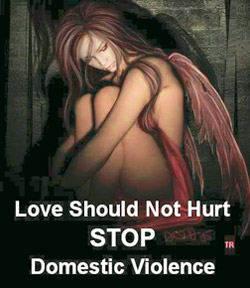 Gone are the days when women were supposed to get married, bear
children, stay at home and end up being doormats or slaves. Today, women
are more open and independent, especially in the West where women are
given due recognition. Gone are the days when women were supposed to get married, bear
children, stay at home and end up being doormats or slaves. Today, women
are more open and independent, especially in the West where women are
given due recognition.
compared to those antiquated times However, in Asian culture, women
do not seem to be getting equal rights, though they hold top positions
in different fields. There is a certain amount of apprehension that
women are not equally recognised as their male counterparts.
Though society has changed the concept remains the same, that the
male is dominant, and priority is still given to the male. We can see
how women get insulted, humiliated and ridiculed for what they are, and
even become victims of mental and sexual harassment, domestically, in
public, and even at the work place.
Are women's rights being properly carried out ? Is the modern woman
insecure in this wiered society ?
The Sunday Observer spoke to Raveendra Sumathipala, attorney-at-law,
who is a professional with a wide knowledge on this subject. This is an
issue which has to be dealt with in-depth so that a new concept could be
envisaged and women could be saved from harassment be it sexual or
otherwise.
Excerpts of the interview:
How would you describe women's rights in a nutshell?
Women are the best of mother natures creation. They are equally
entitled to all rights enjoyed by men. Women's rights are the rights
claimed by women against all traditional and historical restrictions
preventing women from enjoying equal human rights.
Though there are loads of women's rights being implemented, there's
no ending to the harassment of women.
How would you describe the harassment of women ? Do you think the
laws are being carried out in a proper manner?
Harassment against women can be physical, verbal or psychological.
These can be things that happen in day-to- day activities, at domestic
level by husband, brother or elderly males, at work place by male
counterparts, colleagues or seniors, at the roadside while travelling,
or while engaging in sports by male athletes or coaches and sometimes
even male fans.
At extreme levels this harassment can be seen as violence against
females and hate crimes. For example rape, domestic violence, sexual
harassment and women trafficking.
The Universal Declaration of Human Rights, adopted in 1948, enshrines
the equal of men and woman, and addresses both the equally and equity
issues.
In 1979, the United Nations General Assembly adopted the Convention
on the elimination of All Forms of Discrimination against woman (CEDAW)
for legal implementation of the Declaration on the Elimination of
Discrimination against women. This Convention defines discrimination
against women in the following terms:
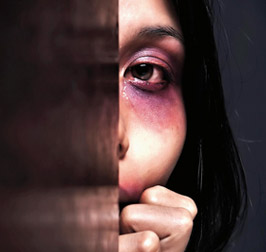 Any distinctions, exclusion or restriction made on the basis of sex
which has the effect or purpose of impairing or nullifying the
recognition, enjoyment or exercise by women, irrespective of their
marital status, on a basis of equality of men and women, of human rights
and fundamental freedoms in the political, economic, social cultural,
civil or any other field. Any distinctions, exclusion or restriction made on the basis of sex
which has the effect or purpose of impairing or nullifying the
recognition, enjoyment or exercise by women, irrespective of their
marital status, on a basis of equality of men and women, of human rights
and fundamental freedoms in the political, economic, social cultural,
civil or any other field.
This also establishes an agenda of action for putting an end to
sex-based discrimination for which states ratifying the convention are
required to enshrine gender equality into their domestic legislation,
repeal all discriminatory provisions in their law and enact provisions
to guard against discrimination against women.
We had the first woman prime minister and also the president of Sri
Lanka , and women in other top ranking positions. But according to the
Asian culture and tradition the priority seems to go to the man. The
opposite gender gets all the benefits, while females get less. Do you
think this concept should be changed?
Yes. The Sri Lankan women's role in politics is important. I believe
that we at a point of time were ahead of all the other countries having
women in active politics. At such times, even male counterparts
respected their political views and encouraged them to be in the
political arena.
Despite all this, it is sad to see that female representation in Sri
Lankan politics is low. Apart from this the people who go as female
representatives are subjected to humiliation in public by male
counterparts.
In the political arena there is a lot to be desired regarding recent
comments made on women politicians.
It is the same when it comes to certain publications and public
statements are an insult to the nation, committed by Sri Lankan male
politicians. This is what we should stand against.
They should be constrained so that subordinates will emulate them.
What is your opinion about women's s rights organisations? They only
seem to exist when a major issue arises.
|
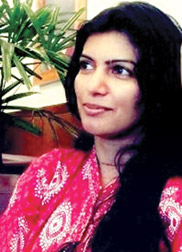
Raveendra Sumathipala |
There are many organisations and groups national and international
who are committed to safeguard women's rights and some of them we
observe have been doing a tremendous job. But unfortunately in Sri Lanka
most such groups are politically driven and thus have not contributed
towards safeguarding the rights of women in Sri Lanka.
In Sri Lanka, when a woman tries to stand up to defend herself, she
is treated as a joke. According to the law, even if you touch a woman it
's supposed to be an offence. Even if it's vocal abuse and ridiculing.
How can these things happen if it is so?
This is of course is unfortunate and prevails in the South Asian
region. Sri Lanka ranks at 74 in the UN Gender Inequality Index amongst
187 countries. In Sri Lanka the law against violence against women is
comparatively stricter than in other countries in the region.
Chapter III of the 1978 Constitution of Sri Lanka sets out
Fundamental Rights , which ensure non discrimination on the ground of
sex (and other specified grounds) , which can be used in responding to
violence against women in keeping with provisions in Article 12(2).
Though this has not been frequently used Article 11 on torture has been
interpreted as covering rape and grave sexual abuse while in the custody
of state social officials. According to Article 17, every person shall
be entitled to apply to the Supreme Court as provided in Article 126 in
respect of infringement or imminent infringement by executive or
administrative action of a fundamental right to which such person is
entitled under the provisions of Chapter III .
Apart from this on March 3 1993, the Sri Lanka Women's Charter was
adopted and it is the main policy statement of the State regarding the
rights of women , expressing the commitment of the State to remove all
forms of discrimination against women and address crucial issues
relevant to them.
The Charter aims at eradicating sex- based discrimination. The
Charter also addresses violence against women. The Charter states that
the State shall take measures to prevent the phenomenon of violence
against women, children and young persons in society, in the workplace,
in the family as well as while in custody, in particular such
manifestation of it as rape , incest , sexual harassment and physical
and mental abuse, torture, cruel and inhuman degrading treatment.
It is unfortunate that even after two decades of adopting the Charter
we still hear about all types of unfortunate incidents of this nature
against women in Sri Lanka.
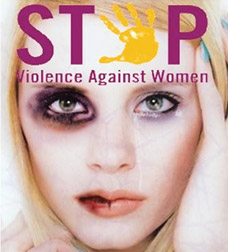 One of the main reasons for this is the fact that even though the law
has evolved, the attitudes of people has not. One of the main reasons for this is the fact that even though the law
has evolved, the attitudes of people has not.
Unfortunately, certain traditions and cultural barriers stand in the
way as well. I believe that this can be prevented by teaching children
from their tender ages to respect women, as mothers, sisters and equal
members of society.
Schools and religious classes are the best places to teach
discipline. Lack of education is the reason for misconceptions that
prevail in society. In fact Prophet Muhammed has said, "Read even if it
takes you to China". This statement made by Prophet Muhammed is without
gender bias.
Most people think that women are only there to be toyed around and
used. But once she's ''dumped'' the male gets away with it and the woman
has to face the consequences.
She has to suffer and answer all the questions. She has to face the
embarrassment. This seems to be a common problem when it comes to women.
Isn't there any solution at all to prevent the woman from being
humiliated?
Most of the time it is the culture and tradition that has created
this situation. Male dominance and the show off of physical strength and
masculinity has caused men to react this way. I believe this as a show
off tendency of a man if they tend to use physical strength towards
women.
At work place , this could be due to two reasons; one is that a
dominant male would not like to see a competent female climbing up the
ladder in the same profession. n the other hand sometimes females can be
more competent at certain disciplines than males, so they are more
successful.
Though many men don't like to admit, jealousy is also a reason why
males would not assist females in getting into higher ranks in certain
professions.
This is why we still see a lesser wage for women, lesser support in
certain professions for women and lesser recognition for women labour.
In certain other fields, men deliberately make it difficult for women
to succeed by not changing certain traditions , certain work hours that
could prevent a woman from remaining in the same field of work after
marriage or due to security reasons.
Rape was first recognised as a crime against humanity when the
International Criminal Tribunal for the former Yugoslavia issued arrest
warrants based on the Geneva Conventions and Violations of the Laws or
Customs of War.
This is one of the most ancient forms of violence and crimes against
women. More than half of the rape cases go unreported. This is because
the victims do not want to shame their families by publicising the abuse
they have gone through and they do not want to face embarrassing
cross-questioning in Court.
Society makes the victims pay for someone else's mistakes. Unwed
mothers are verbally and physically abused in public places.
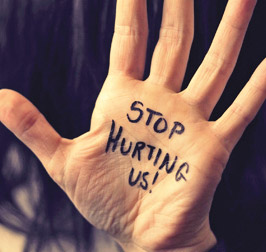 What is your take on phone sex? What is your take on phone sex?
I have heard that some women are being harassed through phone sex
too. As an example , sometime back the Australian cricketer Shane Warne
was accused of having phone sex with a woman. Is it also regarded as a
harassment?
This is a common situation in the present era. One reason that these
things go unremedied is because the culprits are more powerful than the
victim. It is harassment. The worst of this kind is the commercialised
harassment towards females.
This includes all the audio and visual entertainment and
advertisement which use women as sex toys.
Vocal and sexual abuse are common in workplaces. How would you
differentiate?
This has an element of an inferiority complex that is prevalent in
certain male counterparts in our societies and workplaces.
What do you think of the Government's contribution to women's rights?
After Independence all governments in Sri Lanka have worked towards
safeguarding women's rights. The prevailing legal developments envisage
this.
During the armed conflict in Sri Lanka the Government faced a
tremendous challenge in safeguarding women's rights in the North and
East while continuing to defeat terrorism. This is no easy task for a
Government.
There was international pressure against the Government and
accusations of war crimes. Amongst such accusations were the insecurity
of the minority women in the North and East and the sexual violence
against women in the war zone.
There had been many reports of rape, abduction of women and assault.
There was an estimated 89,000 war widows in the conflict areas with
around 40,000 women- headed households.
Apart from this there were female LTTE cadres who were young girls in
need of rehabilitation to start life afresh. The Government took up this
challenge which should be appreciated.
Finally, what are your suggestions to safeguard women's rights and
harassment?
As I said earlier education has a lot to do in safeguarding women's
rights and safeguarding women against all kinds of harassment and
violence.
The most unfortunate situation is that most women in our society are
not aware that some of the things that happens in there day- to- day
life can amount to harassment and violence and punishable crimes.
If a person talks in unpardonable language and utters epithets to a
woman it is verbal abuse which we tend to ignore.,
If a husband hits a wife it is ignored as a right that could be
exercised by a man towards his woman where as it amounts to domestic
violence.
No person has the right to assault a woman and the law is strict on
violence against women.
Women should be educated as to what harassment means and what
remedies are available to them.
Any further comments?
It is the responsibility of every citizen to educate the younger
generation to respect women as equal human beings and to safeguard their
rights.
I believe that women in our country have to be more vigilant in
selecting who leads them in the political arena. |

